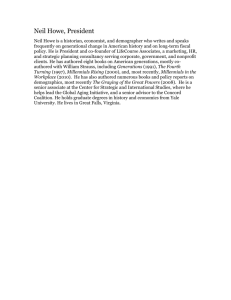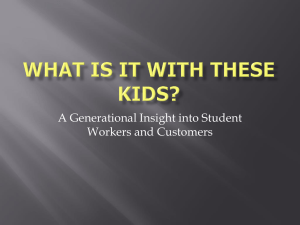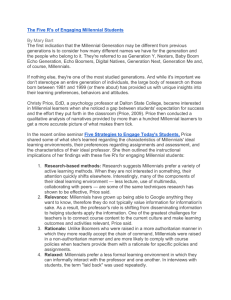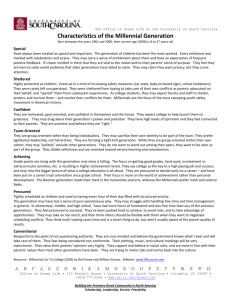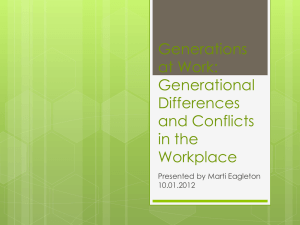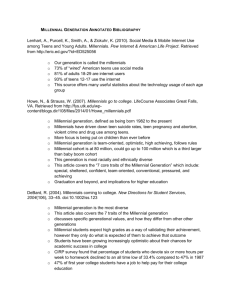The Millennial Challenge: Growing a New Generation of Workers
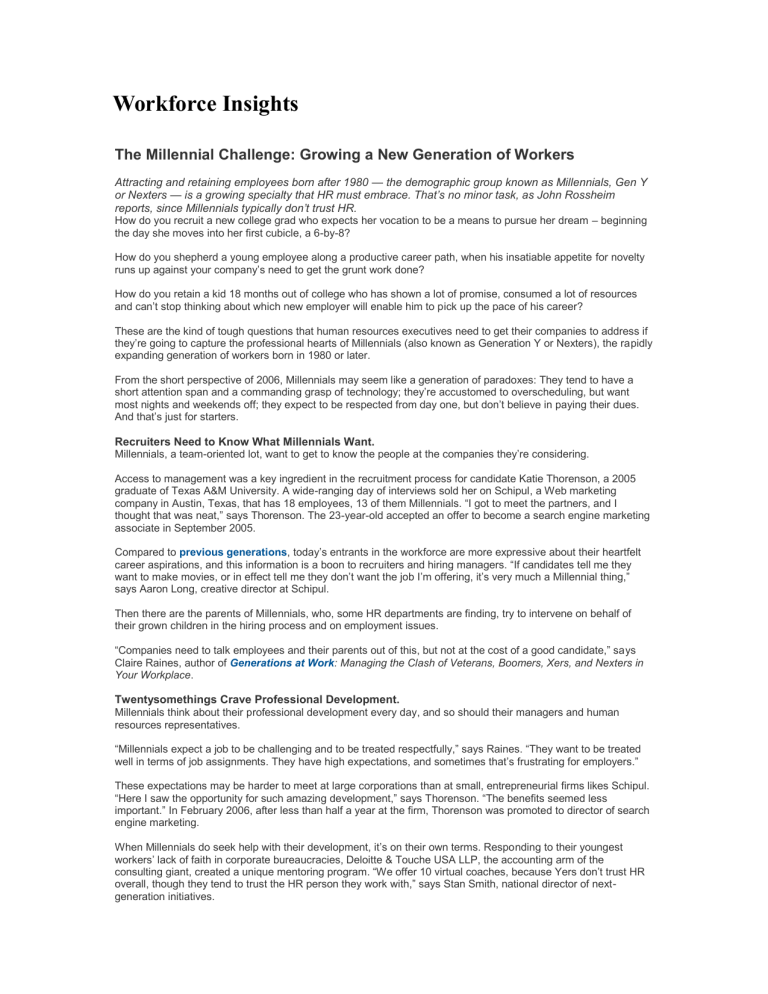
Workforce Insights
The Millennial Challenge: Growing a New Generation of Workers
Attracting and retaining employees born after 1980
— the demographic group known as Millennials, Gen Y or Nexters — is a growing specialty that HR must embrace. That’s no minor task, as John Rossheim reports, since Millennials typically don’t trust HR.
How do you recruit a new college grad who expects her vocation to be a means to pursue her dream – beginning the day she moves into her first cubicle, a 6-by-8?
How do you shepherd a young employee along a productive career path, when his insatiable appetite for novelty runs up against your company’s need to get the grunt work done?
How do you retain a kid 18 months out of college who has shown a lot of promise, consumed a lot of resources and can’t stop thinking about which new employer will enable him to pick up the pace of his career?
These are the kind of tough questions that human resources executives need to get their companies to address if they’re going to capture the professional hearts of Millennials (also known as Generation Y or Nexters), the rapidly expanding generation of workers born in 1980 or later.
From the short perspective of 2006, Millennials may seem like a generation of paradoxes: They tend to have a short attention span and a commanding grasp of technology; they’re accustomed to overscheduling, but want most nights and weekends off; they expect to be respected from day one, but don’t believe in paying their dues.
And that’s just for starters.
Recruiters Need to Know What Millennials Want.
Millennials, a team-oriented lot, want to get to know the people at the companies they’re considering.
Access to management was a key ingredient in the recruitment process for candidate Katie Thorenson, a 2005 graduate of Texas A&M University. A wide-ranging day of interviews sold her on Schipul, a Web marketing company in Austin, Texas, that has 18 employees, 13 of them Millennials. “I got to meet the partners, and I thought that was neat,” says Thorenson. The 23-year-old accepted an offer to become a search engine marketing associate in September 2005.
Compared to previous generations , today’s entrants in the workforce are more expressive about their heartfelt career aspirations, and this information is a boon to recr uiters and hiring managers. “If candidates tell me they want to make movies, or in effect tell me they don’t want the job I’m offering, it’s very much a Millennial thing,” says Aaron Long, creative director at Schipul.
Then there are the parents of Millennials, who, some HR departments are finding, try to intervene on behalf of their grown children in the hiring process and on employment issues.
“Companies need to talk employees and their parents out of this, but not at the cost of a good candidate,” says
Claire Raines, author of Generations at Work : Managing the Clash of Veterans, Boomers, Xers, and Nexters in
Your Workplace .
Twentysomethings Crave Professional Development.
Millennials think about their professional development every day, and so should their managers and human resources representatives.
“Millennials expect a job to be challenging and to be treated respectfully,” says Raines. “They want to be treated well in terms of job assignments. They have high expectations, and sometimes that’s frustrating for employers.”
These expectations may be harder to meet at large corporations than at small, entrepreneurial firms likes Schipul.
“Here I saw the opportunity for such amazing development,” says Thorenson. “The benefits seemed less important.” In February 2006, after less than half a year at the firm, Thorenson was promoted to director of search engine marketing.
When Millennials do seek help with their development, it’s on their own terms. Responding to their youngest workers’ lack of faith in corporate bureaucracies, Deloitte & Touche USA LLP, the accounting arm of the consulting giant, created a unique mentoring program. “We offer 10 virtual coaches, because Yers don’t trust HR overall, though they tend to trust the HR person they work with,” says Stan Smith, national director of nextgeneration initiatives.
The Toughest Challenge Is to Retain Millennials.
Since Millennial college graduates only began their working careers a few years ago at most, retention is perhaps the greatest unknown in the management of this workforce segment. But there are some simple starting points.
Helping pay off student loans and offering tuition reimbursement are likely to have immediate appeal to younger professionals who have spent most of their lives receiving education and envision for themselves a path of lifetime learning.
And immediate gratification is effective for young workers who grew up video gaming. “Spot awards bonuses are very important to Gen Y, ” says Smith.
Of greater importance are strategies that help employers build bridges to longer tenures that Millennials may not envision on their own. Raines suggests that “companies can ask themselves, ‘Can we put in smaller steps up (the ladder), not j ust a big promotion every five years?’ ”
In the end, retention of Millennials must be linked to professional development, perhaps more so than with previous generations. “What I think works best is helping individual employees develop their careers,” says Long.
“We’ve got to make sure we build these people up.”
Employers also need to keep in mind that they’re now seeing just the first few years of the Millennials, a generation that will ultimately prove more diverse and perhaps more demanding than the storied Baby Boomers.
At Deloitte, a Big Four firm with a lot of cachet, “we’re still getting very good people,” says Smith. “But over time the question is, will we continue to get them?”
Finally, claiming resources for the recruitment, development and retention of Millennials is a steep challenge for human resources executives. “HR managers are trying hard, but they don’t always have an easy time selling it to the upper echelons of management,” says Raines.
John Rossheim is a journalist in Providence, RI. He writes about workplace issues, employment trends and changing relationships between employers and workers.
From Vertitude, Strategic Human Resources http://www.veritude.com/ResourceCenter/ResourceView.aspx?id=1349
